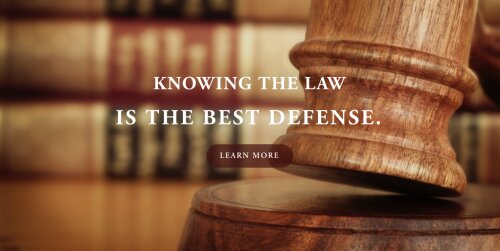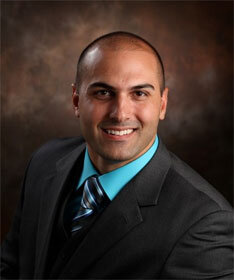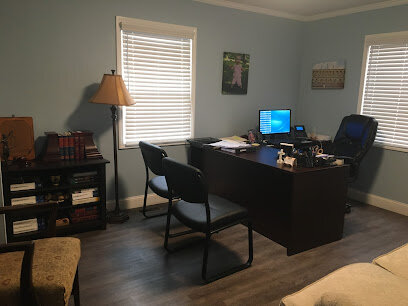Best Child Abuse Lawyers in Arkansas
Share your needs with us, get contacted by law firms.
Free. Takes 2 min.
Free Guide to Hiring a Family Lawyer
Or refine your search by selecting a city:
List of the best lawyers in Arkansas, United States
About Child Abuse Law in Arkansas, United States
Child abuse is a serious legal and social issue in Arkansas, United States. Arkansas law is designed to protect children from harm and to hold those who abuse or neglect children legally accountable. Child abuse can include physical abuse, emotional abuse, sexual abuse, and neglect. State authorities, law enforcement, and courts take allegations of child abuse very seriously, and a variety of professionals are required by law to report suspected child abuse to authorities. The legal process surrounding child abuse cases can be complex, with outcomes ranging from family intervention and protective orders to criminal prosecution and removal of children from unsafe environments.
Why You May Need a Lawyer
Legal assistance can be extremely valuable in child abuse cases for several reasons. If you or someone you know is facing accusations of child abuse, a lawyer can help protect your rights and ensure you receive a fair hearing. If you are a victim of child abuse or are advocating for a child, an attorney can guide you through the process of reporting abuse, seeking protection, and navigating the legal system. Legal help is also essential if you are dealing with child custody or child protection issues that involve allegations of abuse. Experienced lawyers are familiar with Arkansas procedures for both criminal and civil aspects of these cases and can assist with defense, victim representation, and appearances in both family and criminal courts.
Local Laws Overview
In Arkansas, the law defines child abuse as any act or omission that results in harm or a substantial risk of harm to a child's physical or psychological health. The Child Maltreatment Act (Ark. Code Ann. § 12-18-101 et seq.) is the main legislation governing these issues. The Arkansas Department of Human Services (DHS) and Division of Children and Family Services (DCFS) have authority to investigate allegations. Certain professionals, such as teachers, doctors, and social workers, are mandatory reporters and must report suspected abuse. Failing to report can result in legal penalties. The law provides criminal penalties for abusers, including potential jail time or fines, and empowers judges to issue protective orders to keep children safe. Additionally, Arkansas law allows for removal of a child from a dangerous situation and outlines procedures for foster care or adoption in the event reunification is not possible.
Frequently Asked Questions
What constitutes child abuse in Arkansas?
Child abuse in Arkansas includes physical, emotional, and sexual abuse as well as neglect. This means any intentional or negligent act that results in injury, trauma, or risk to a child's health or welfare.
Who is required to report child abuse in Arkansas?
Certain professionals, including teachers, healthcare workers, clergy, and law enforcement personnel, are mandated by law to report any suspected child abuse. However, anyone who suspects a child is being abused can make a report.
How do I report suspected child abuse?
You can report suspected child abuse to the Arkansas Child Abuse Hotline by phone. Reports can also be made to local law enforcement or the Department of Human Services.
What happens after a report is made?
Once a report is made, authorities will evaluate and may investigate the allegation. This can involve interviews, examination of evidence, and may result in protective orders or removal of the child if their safety is at risk.
Can a child be removed from home based on a report alone?
Removal of a child typically requires evidence that the child is in immediate danger. Authorities must follow due process and seek a court order for removal unless there is an emergency.
What are the potential criminal penalties for child abuse in Arkansas?
Penalties may include fines, imprisonment, probation, or court-ordered counseling. Severity depends on the nature and extent of the abuse and the resulting harm.
What are my rights if I am accused of child abuse?
If accused, you have the right to legal counsel, to be informed of the accusations, and to a fair hearing in court. A lawyer can help defend your rights and challenge unfounded accusations.
Can child abuse allegations affect custody proceedings?
Yes, allegations or evidence of abuse can have a significant impact on child custody determinations. Courts put the best interests and safety of the child first.
How can victims of child abuse receive help and protection?
Victims can receive protective orders, counseling, medical care, and support from local and state agencies dedicated to child welfare.
Are child abuse records confidential in Arkansas?
Reports and records regarding child abuse are generally confidential and only available to authorized agencies, law enforcement, and the courts.
Additional Resources
- Arkansas Child Abuse Hotline (operated by DCFS) - Arkansas Department of Human Services, Division of Children and Family Services (DCFS) - Arkansas State Police Crimes Against Children Division - Local law enforcement agencies - Arkansas Legal Aid organizations - Child Advocacy Centers throughout Arkansas - National Child Abuse Hotline These organizations can provide support, assistance in reporting abuse, and connections to legal assistance.
Next Steps
If you suspect child abuse or have been accused of it, act quickly. For immediate danger, call 911. Otherwise, make a report to the Arkansas Child Abuse Hotline or local authorities. If you need legal advice, contact a lawyer experienced in child abuse cases in Arkansas. Gather any records, reports, or evidence related to your situation to prepare for your legal appointment. If you cannot afford a lawyer, Arkansas has legal aid services that may help. Seeking legal and professional help early is the best way to protect children and your own legal rights.
Lawzana helps you find the best lawyers and law firms in Arkansas through a curated and pre-screened list of qualified legal professionals. Our platform offers rankings and detailed profiles of attorneys and law firms, allowing you to compare based on practice areas, including Child Abuse, experience, and client feedback.
Each profile includes a description of the firm's areas of practice, client reviews, team members and partners, year of establishment, spoken languages, office locations, contact information, social media presence, and any published articles or resources. Most firms on our platform speak English and are experienced in both local and international legal matters.
Get a quote from top-rated law firms in Arkansas, United States — quickly, securely, and without unnecessary hassle.
Disclaimer:
The information provided on this page is for general informational purposes only and does not constitute legal advice. While we strive to ensure the accuracy and relevance of the content, legal information may change over time, and interpretations of the law can vary. You should always consult with a qualified legal professional for advice specific to your situation.
We disclaim all liability for actions taken or not taken based on the content of this page. If you believe any information is incorrect or outdated, please contact us, and we will review and update it where appropriate.
Browse child abuse law firms by city in Arkansas
Refine your search by selecting a city.















